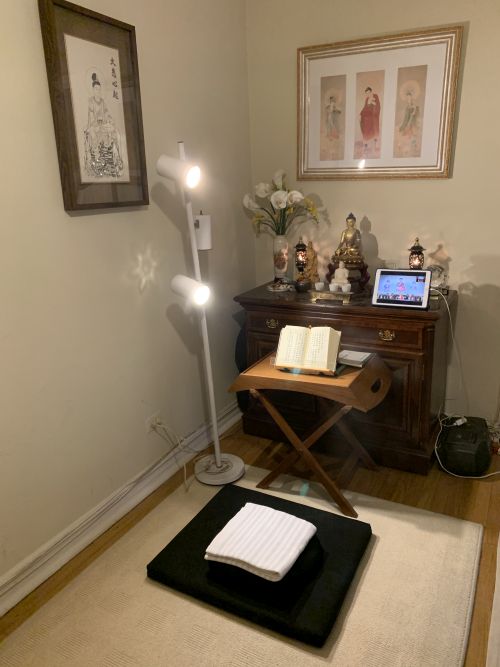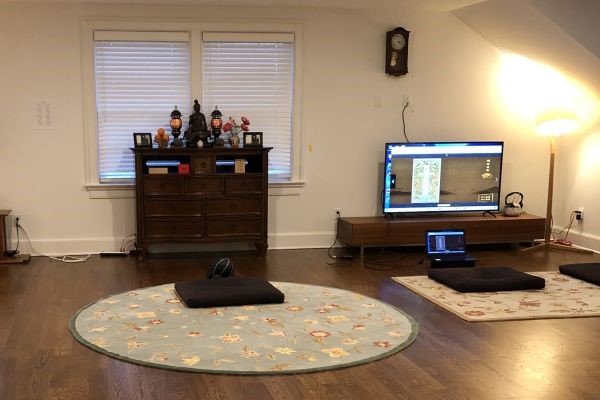Experience sharing
2020 Great Compassion Water and Land Service Online Practice Sharing
 Like every other part of life since Spring, we practiced the rituals of "Liang Huang Repentance Sutra" at home via internet and it turned out to be powerful. This Repentance Sutra has been widely practiced for about 1400 years and is considered the king of repentance teachings. In this voluminous sutra, we pray for ancestors and for living beings alike. It is the Chan Meditation Center's focus around Thanksgiving every year to support world peace, health and happiness for all. Naturally, this year, we also prayed for the end of Covid-19.
Like every other part of life since Spring, we practiced the rituals of "Liang Huang Repentance Sutra" at home via internet and it turned out to be powerful. This Repentance Sutra has been widely practiced for about 1400 years and is considered the king of repentance teachings. In this voluminous sutra, we pray for ancestors and for living beings alike. It is the Chan Meditation Center's focus around Thanksgiving every year to support world peace, health and happiness for all. Naturally, this year, we also prayed for the end of Covid-19.The entire ceremony takes seven days. A purification ritual on the first day readies participants to welcome all beings. Five days are devoted to chanting and prostrations, a total of 2205 bows while reciting 2205 Buddhas' names and covering 784 pages of sutra text in 10 chapters, an average of 441 per day. The repetition of long kneeling, joining and releasing palms, bows and rises accompanied by clear instruments like drums, bells, chimes, muyu, clang and hafnium constitutes the great majority of the ceremony, activating the primary elements of Buddhist practice.
The Venerable Chang Hwa introduced each section which greatly aided our understanding. Before section three, she encouraged us to chant through our abdomen to access sorrow. Before chapter five, she explained that letting go of hate and grievances is accomplished by forgiving others and the acceptance of forgiveness. The patterns fueling hate can stretch many generations and we need strong spiritual support to disrupt those patterns. Buddha is one such support. Because karma compiles, we need to repent in this life, for past lives and for future lives. The Venerable Chang Hwa's explanations turned a corner on my understanding.
 The prostrations are very strenuous for 3 days and then you pick up a rhythm. Beautiful instrumentation uplift us from the physical strain and soreness. On the fourth day, we were able to follow the sutra and movement smoothly and did not focus on the physical anymore. This practice is another form of meditation and requires similar concentration to follow the group, the text and the teachers. Wandering thoughts are always near.
The prostrations are very strenuous for 3 days and then you pick up a rhythm. Beautiful instrumentation uplift us from the physical strain and soreness. On the fourth day, we were able to follow the sutra and movement smoothly and did not focus on the physical anymore. This practice is another form of meditation and requires similar concentration to follow the group, the text and the teachers. Wandering thoughts are always near.Surprisingly, the use of modern technology helped me engage with the entire ceremony deeply. This ritual cultivates easeful body and mind starting with each person, who practice it for the peace of all. I felt enormous achievement, community and energy, which is especially important during Covid-19. As always, Chan Meditation Center will re-donate their collected funds to NYC food banks, the St. Louis Women's Domestic Abuse Center and other charity organizations.
Text: Alice Chen,
Translation: Jennifer Evans
Translation: Jennifer Evans
